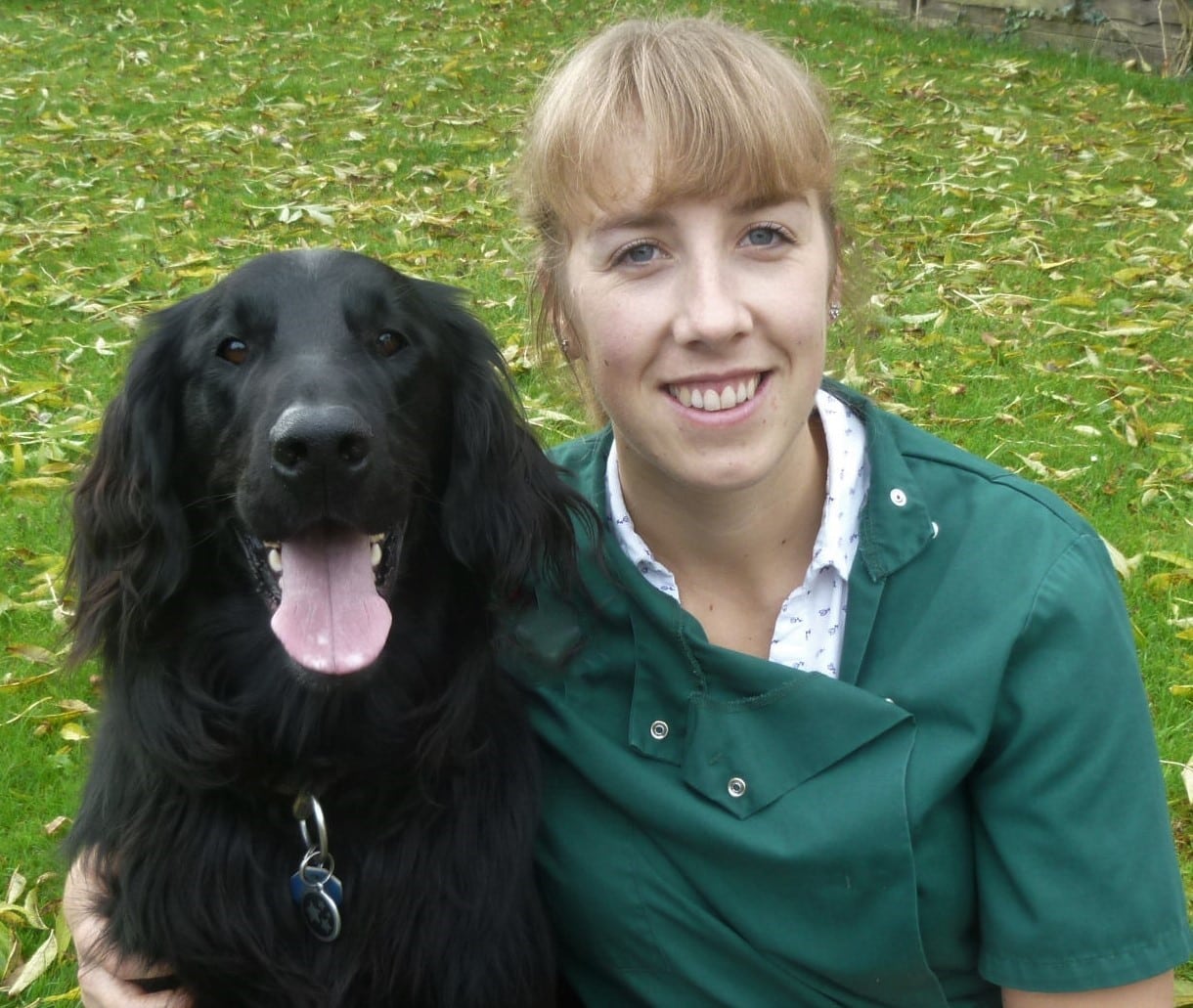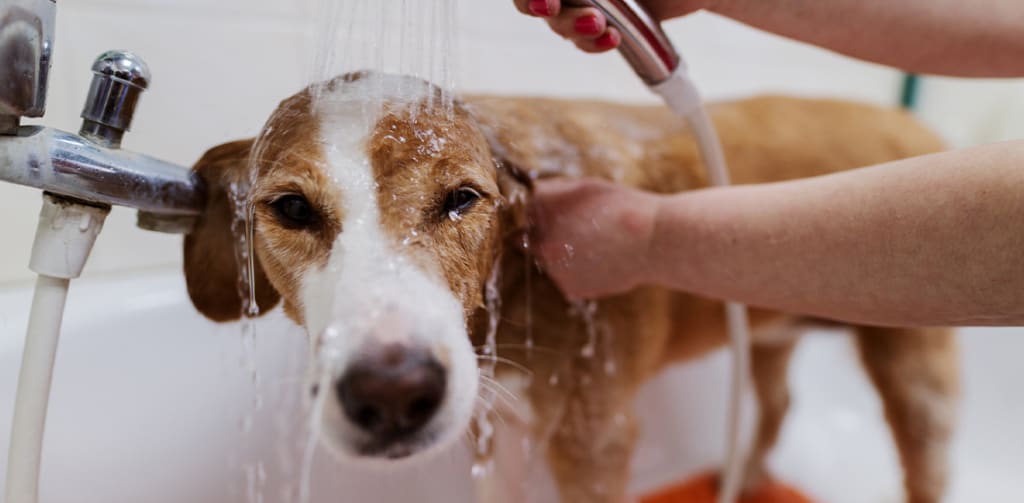You’ve just noticed that your pet has fleas and you want to kill them as soon as possible, but all you have to hand is Dawn dish soap! Let’s explore whether Dawn dish soap is an effective method of flea control and whether it is safe to use on our pets or not.
Table of Contents
What is Dawn dish soap?
Dawn dish soap is a brand of liquid soap used to wash dishes. It’s a top-selling brand in the US and can therefore be found in many American households. The surfactants found in the soap help to cut through grease and dirt, but they also reduce the surface tension of water, which means dirt (and fleas) sink.
Does Dawn dish soap kill fleas?
Yes, as with many other soaps and shampoos, Dawn dish soap will kill fleas on your pet. It works by reducing the surface tension of water, causing fleas to sink and drown. Dish soap also affects fleas by damaging their waxy exoskeletons. The exoskeleton is the hard outer shell that protects the flea, and if this becomes impaired water can enter the flea’s respiratory tract, drowning them.
Dawn dish soap will help rinse flea eggs out of your pet’s coat and down the drain. However, it does nothing to tackle flea eggs.
Is Dawn dish soap safe to use on pets?
We know that dish soap is relatively safe if applied carefully, as it is often used when cleaning oil off wild birds and other animals in emergency situations. If you choose to use dish soap on your dog, then make sure that it is free of perfumes and additional chemicals. Sticking to the original Dawn dish soap is the safest option, though other similar brands may be ok too.
Make sure the dish soap is well diluted in warm water before lathering it into your dog’s fur, as too much dish soap could dry their skin out and cause irritation. Keep it away from his face, especially his eyes, and make sure you rinse your dog thoroughly in plenty of clean water afterward too. It wouldn’t be recommended to use dish soap regularly as it will dry out his natural oils, but it should be ok as a one-off.
Why isn’t Dawn dish soap an effective method of flea control?
While Dawn dish soap will reduce flea numbers on your pet, it does nothing to tackle the immature stages of the flea life cycle. By the time you have seen fleas in your pet’s coat, they will probably have started reproducing already. Killing the visible fleas on your pet only deals with part of the problem.
Female fleas can lay up to 50 eggs per day, which will roll out of your pet’s fur into the household. These hatch into larvae, which are small, wiggly, and worm-like. They crawl into the gaps between floorboards or carpet fibers, feeding on dirt and debris. They then spin themselves a sticky cocoon that sits, camouflaged, in the environment until hatching out as a new adult flea.
These will hop onto your pet and start feeding and reproducing again. A preventative flea product would stop this from happening, whereas Dawn dish soap has no lasting protective effects, and so the flea life cycle is allowed to continue. Intermittent bathing with this product will reduce adult flea numbers temporarily but won’t get rid of your flea problem altogether.
Dawn dish soap does nothing to prevent reinfection with fleas, so you are likely to see an ongoing flea issue with your pet unless you switch to a proper preventative flea product.
What flea products should I be using on my pet?
There are a variety of flea products available for cats and dogs. These include tablets, spot-on treatments, and collars. The most effective products tend to be prescription products, obtained via your veterinarian. While over-the-counter or online products may be more easily accessible, you should always speak to your veterinarian to see what they advise for your pet.
As well as products for your pet, you should use a treatment for your house too, to kill off some of the immature stages of the flea life cycle. Household flea sprays or bombs can help to reduce the number of eggs and larvae in the environment.
Use a preventative flea product all year round, to stop fleas from multiplying in the first place – prevention is easier than cure.
Conclusion
Dawn dish soap will kill fleas on your pet, but it is not a particularly effective means of flea control. It will not tackle the environmental stages of the flea life cycle or prevent reinfestation. Plus, it should only ever be used as a one-off, as dish soap could potentially be drying and irritating to your pet’s skin. Instead, you should speak to your veterinarian for advice on effective flea products.
FAQ
Dawn dish soap will help rinse flea eggs out of your pet’s coat and down the drain, preventing them from hatching out. However, it does nothing to tackle flea eggs that have already rolled off of your pet into your household. These will develop and reinfect your cat or dog, and so the flea life cycle continues.
Dawn dish soap will drown fleas that are on your pet, killing them quickly. However, it does nothing to prevent reinfection with fleas, so you are likely to see an ongoing flea issue with your pet unless you switch to a proper preventative flea product.
It doesn’t matter if your product kills adult fleas instantly, as, by the time you have spotted them, they will probably already have started reproducing and laying eggs (which will have rolled off into the house). Instead, it is more important that the products you use have ongoing preventative effects to kill off any newly hatching fleas that land on your pet. Most prescription flea products will start working within 24 hours but speak to your veterinarian for further details.
Dawn dish soap will kill fleas by drowning them, which happens fairly quickly. However, flea eggs, larvae, and pupae in the environment will be left untouched. These will mature, hop back onto your pet, and start reproducing, leading to more fleas.

Rebecca is a companion animal vet who has always had a passion for writing and client communication. Since her graduation from the Royal Veterinary college in 2009, she has gained a wealth of experience in first opinion small animal practice, in both clinical and managerial roles. She currently works in the South West and deals with a variety of routine and emergency appointments, but particularly enjoys medicine cases. Outside of work and writing, she enjoys spending time with her family, including her bouncy flat-coated retriever George!

Rebecca is a companion animal vet who has always had a passion for writing and client communication. Since her graduation from the Royal Veterinary college in 2009, she has gained a wealth of experience in first opinion small animal practice, in both clinical and managerial roles. She currently works in the South West and deals with a variety of routine and emergency appointments, but particularly enjoys medicine cases. Outside of work and writing, she enjoys spending time with her family, including her bouncy flat-coated retriever George!








